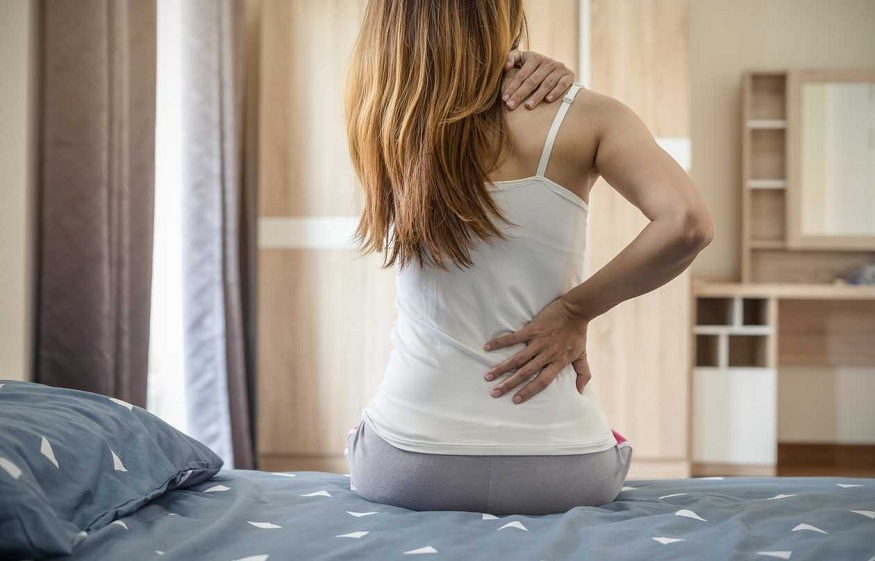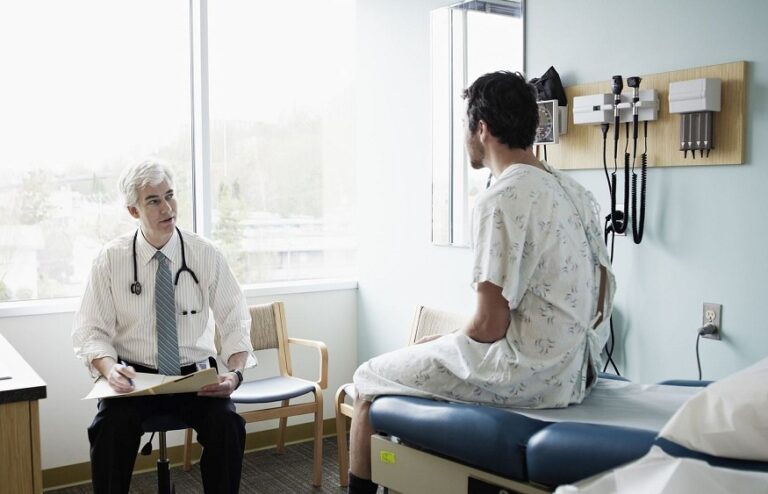Back pain is part of our daily life, because it can be linked to many activities: poor posture or prolonged posture at work, telework itself, a wrong move when moving house, intensive sporting activity or again during pregnancy.
If you have back pain, make an appointment for a consultation with physiotherapy, occupational therapy , or massage therapy .
How to quickly relieve back pain? Our 4 tips
Stop the physical activity or repetitive movement that is causing your pain. Don’t let the rest period drag on, however. Gradually resume even light physical activity. It could be just walking around your living room for example.
In case of inflammation, apply cold 10-20 minutes or remove it when you start to feel numbness. Once the inflammation has passed, you can either apply heat or continue to apply cold, if this relieves your pain. However, do not apply either directly to the skin so as not to burn or irritate it.
Practice self-massage with a ball. Said like that, it may sound crazy, but this technique is proven. Stand against a wall and move the ball over the painful area to relax the muscles and release tension. Do not move the ball over the vertebrae directly.
To prevent further pain, adopt good habits. Exit the sedentary lifestyle, practice regular physical activity. Adopt a good posture, whatever your activity: at work, sitting or lying down.
If the pain persists and settles over time, make an appointment with one of our physiotherapists. Through techniques such as manual therapy, exercise teaching or tapping, they will certainly be able to relieve you.
In order to avoid developing back pain because of our daily activities, adopt healthy lifestyle habits! We give you 5 tips to avoid unpleasant back pain.
If you work from home, favor an ergonomic environment. Exit the kitchen table. Bring a suitable desk and chair. Your spine will thank you!
Exit the sedentary lifestyle. Practice regular physical activity. You are not told to push your body too hard, which could cause injury, but to move your body. Walking, swimming and cycling have benefits.
When you are at home, do not sit or lie down for too long. During commercials, stand up and stretch your legs to stimulate your proprioception.
Do yoga or meditation to release muscle tension that may build up with the stresses of everyday life.
Pay attention to your posture, whether it’s sitting, lying down, or even lifting a heavy load. For example, in the case of the latter, do not pick up the object directly: make the effort to bend your legs.
Lumbar, dorsal and cervical pain: what are the different back pains?
The back is a large region of the body. Thus, when we talk about back pain, also called the “evil of the century”, it can concern different parts of the body: the lower back, the middle of the back, or the upper back.
Lumbar pain, lower back
Surely you have already heard of low back pain, back pain, barred back or lumbar sprain : all these terms define the same general concept.
Lower back pain is the consequence of an injury to the vertebrae, which are the bones of the spine (cartilage wear), or soft tissue (stretching with or without tearing of the ligament or muscle ).
The possible causes of low back pain are poor posture (prolonged sitting in the case of teleworking, for example), lifting too heavy a load carried out in poor posture, repetitive movements in a professional activity, being overweight or even physical activity. carried out by a person who is not used to it and who requires a sudden effort from his body.
Pain is the main symptom. It can be accompanied by morning stiffness.
Note that lower back pain can also be a sign of damage to neural structures. This is particularly the case with sciatica , characterized by pain along the path of the sciatic nerve.
Back, middle and upper back pain
Back pain in the middle and upper back usually occurs due to sudden movement or poor posture. It may also be caused by a state of stress or anxiety, just like pregnancy.
Neck pain is musculoskeletal damage in the cervical region. Cervicalgia , which refers to neck pain, can have many causes: intensive sports practice, a car accident (we speak of whiplash or whiplash ), prolonged poor posture at work, or bad sleeping position at night.
With the generalization of teleworking, neck pain is very common. Indeed, more and more people spend their days in front of a computer screen, not always in optimal and ergonomic conditions, and on a kitchen table and a chair which are not often either.
Symptoms of neck pain can be pain in the neck, stiffness, difficulty turning the head.
So, whether you have neck, lumbar or back pain, make an appointment directly with one of our physiotherapists.
Remember, some time ago, we were undoing a preconceived idea about stress: it can be both good and bad for your health. It is a normal reaction to a pleasant or unpleasant event.
Thus, our organism is used to react (alarm phase), then to regulate it (resistance phase). If the body of the individual fails to regulate the flow of stress, external signs may appear, such as back pain.
Many patients who are admitted to physiotherapy come to consult for low back pain and in the majority of cases, they then make the connection with the stress related to their professional activity.


















+ There are no comments
Add yours